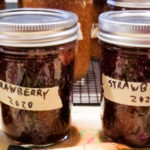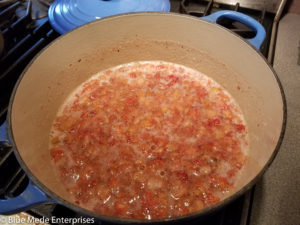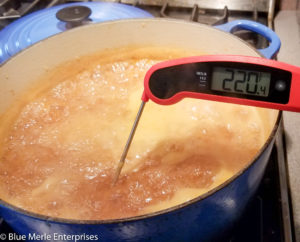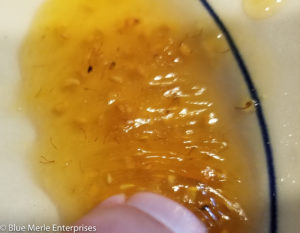Strawberry Jam
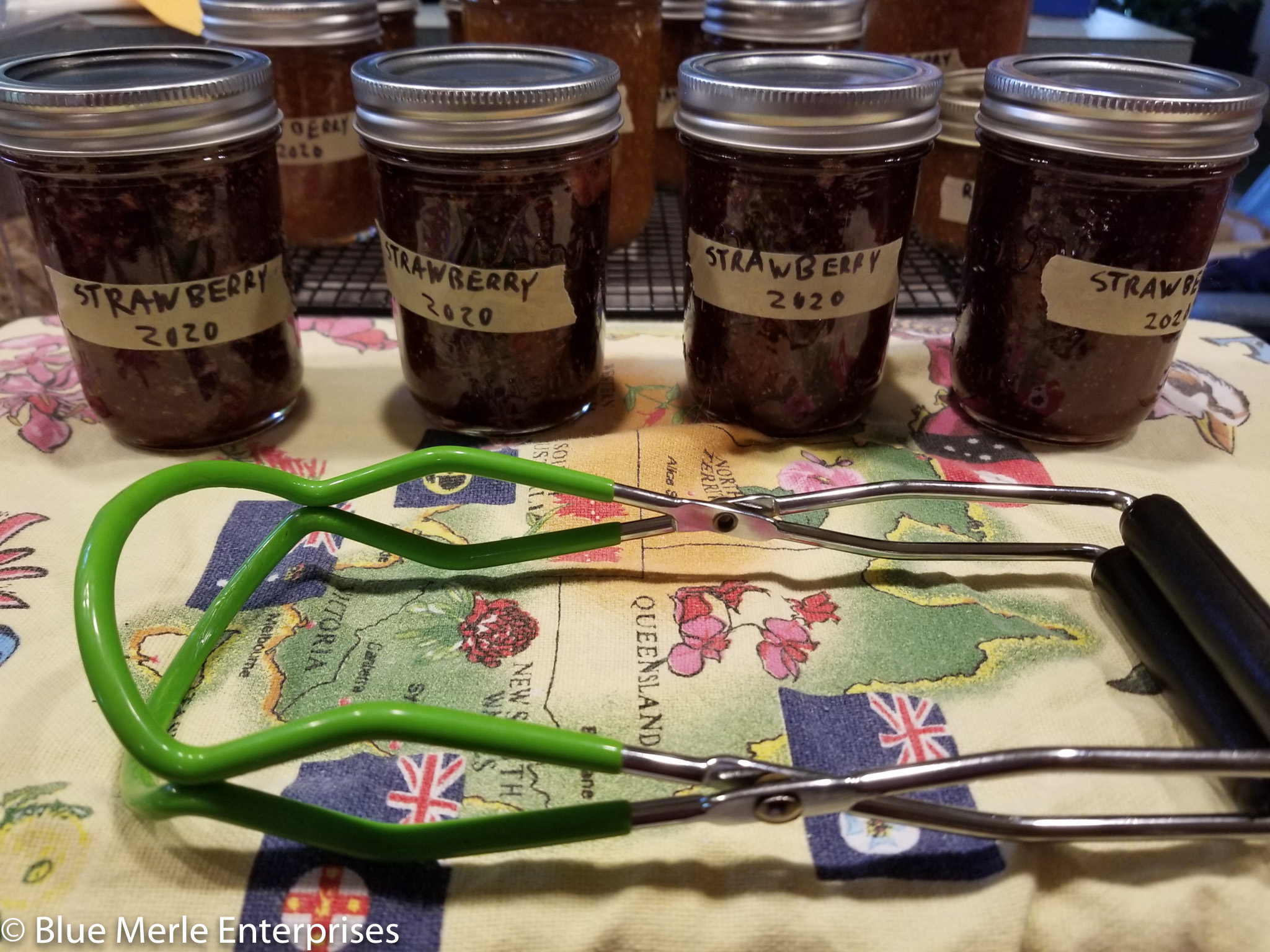
Great with homegrown strawberries.
Fresh or frozen strawberries work fine. When we harvest strawberries, we give them a quick cleaning, husk them, and throw them in a zip lock, and freeze them. By doing that, we can make jam at our leisure. Fresh strawberries diminish in quality quickly and we seldom get enough from a single picking to make jam.
I use a ratio of 1 pound of strawberries to 3/4 pound of sugar to 2 tablespoons of lemon juice. I usually process 2 pounds of berries at a time. I found that sometimes the jam foams up a fair bit so I don’t process much more than 2 pounds of strawberries. I like to use smaller jars for canning, like 4 ounce or 8 ounce jars, but pints (16 oz) are fine too. An advantage of the small jars is that you can have a few on hand to give to friends who will want to take some home after tasting it.
Strawberry Jam
Ingredients
- 2 pounds strawberries
- 1 ½ pounds sugar
- 4 tablespoons lemon juice
Instructions
- Put a couple of light colored plates in the freezer.
- Using a large pot, add the strawberries and heat them until they just start to simmer. As they come to a simmer, crush them with a potato masher.
- Add the sugar and lemon juice to the strawberries. Stir to dissolve the sugar.
- Bring the mixture to a rapid boil.
- Continue to cook the mixture while occasionally stirring it until it reaches 220 °F. For higher altitudes, 8 °F above the temperature that water boils is often used for a rule of thumb.
- You can check for the jellying point using the plates from the freezer in addition to (or instead of) measuring the temperature. Take a plate from the freezer (from step 1) and spoon some of the jam onto the plate, when you tilt the plate you should see a slow decent. If it is runny then it is not ready. You can also push your finger into the jam and if it is at the jellying point you will see ridges form in the jam.
- Let the mixture cool. Skim off any foam. Transfer the jam into hot, sterilized jars. Seal and process using a hot water bath. If you plan on using the jam in a few weeks and don’t process them then seal the jars, cool, and refrigerate.
A Note About Equipment
Canning Funnel
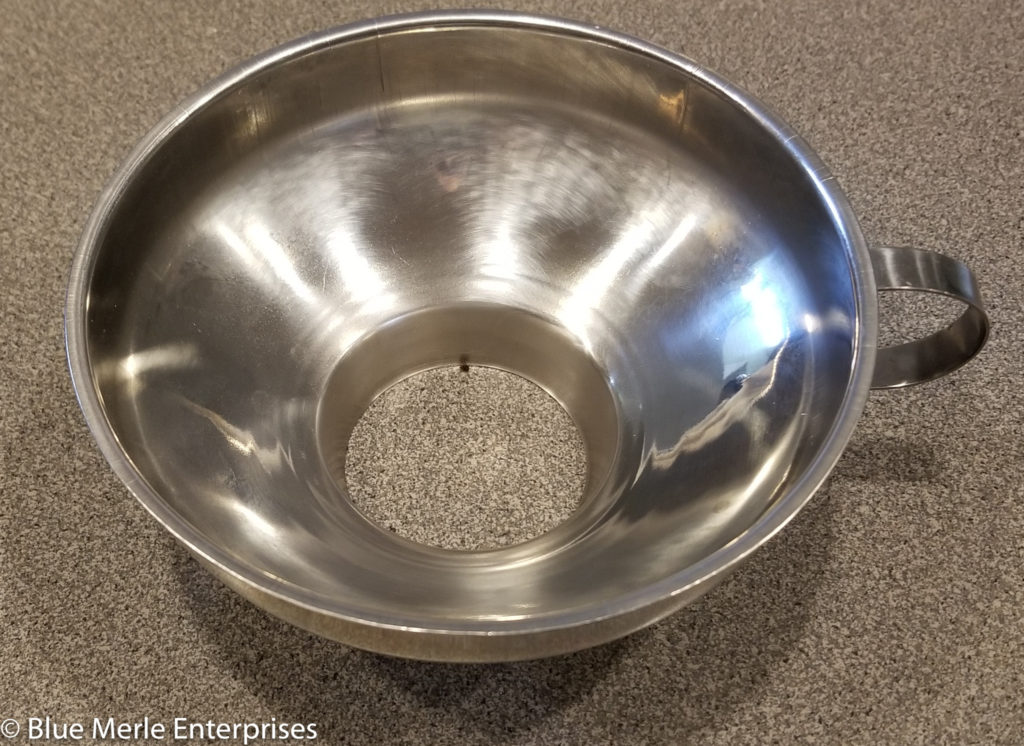
The canning funnel is a surprisingly useful tool not just for filling hot canning jars with jam, but for lots of every day chores when you need to transfer hot liquids. These are designed to fit both wide-mouth and regular-mouth jars.
Large Pot
We like to use our 5.5 quart enameled cast iron dutch oven from Le Creuset for making jam. The enameled surface is nonreactive to any acids in the fruit and the cast iron is great for maintaining heat.
Canning Tongs
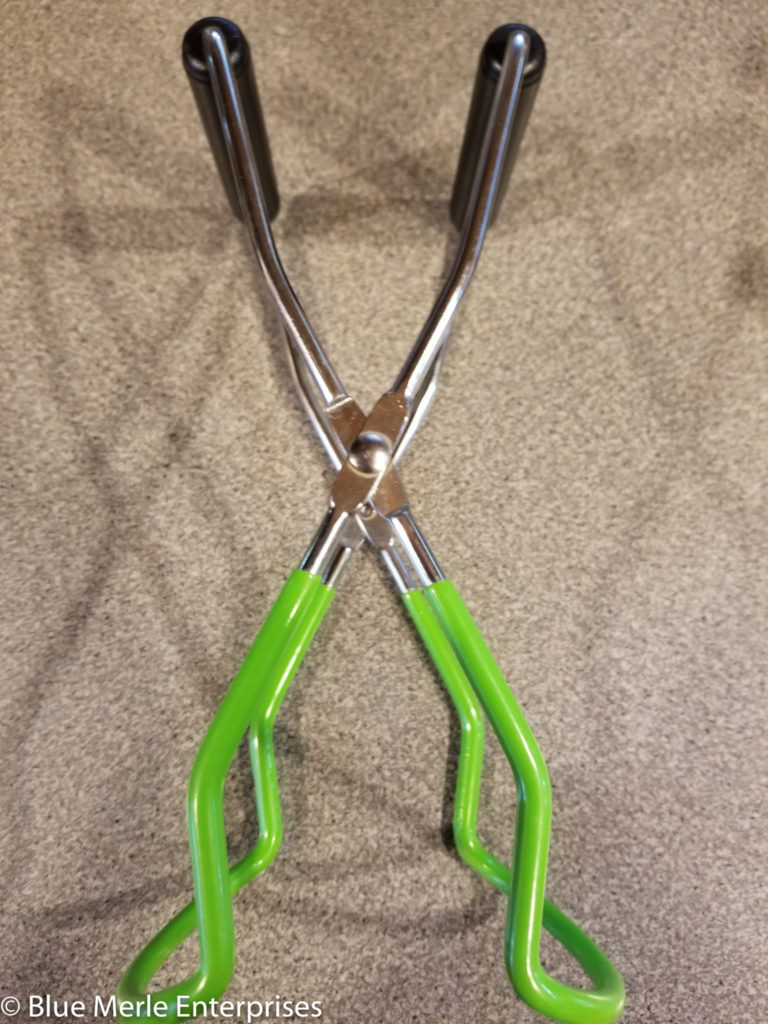
Also called “canning jar lifters”, these are pretty much a necessity when processing jars of jams and preserves. You risk scalding yourself with ad-hoc substitutes.
